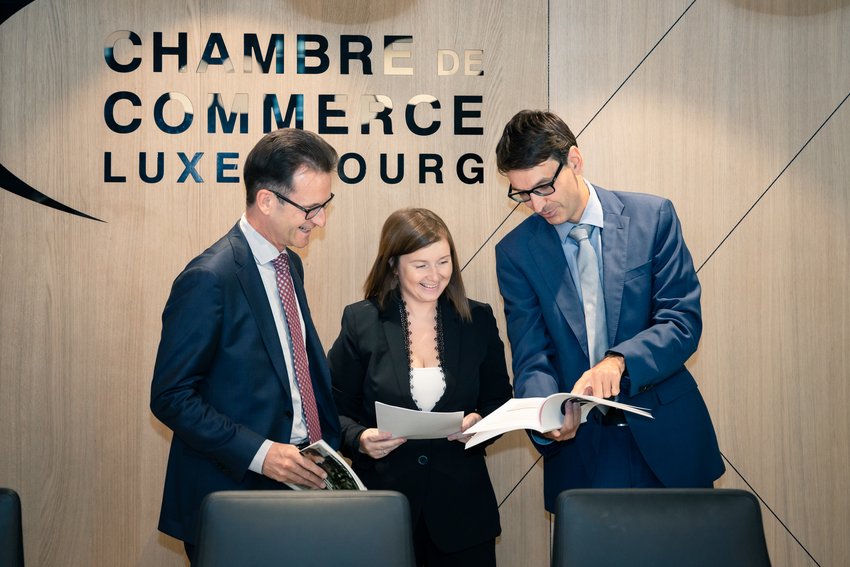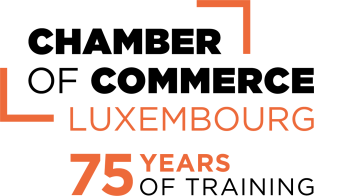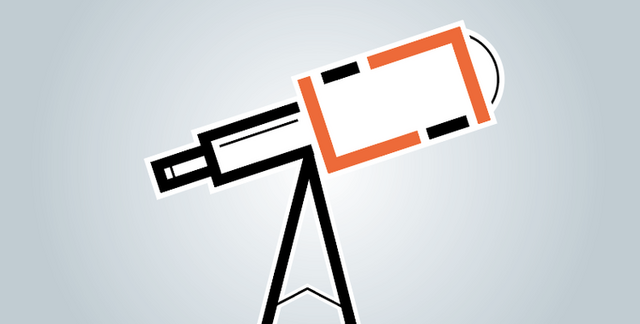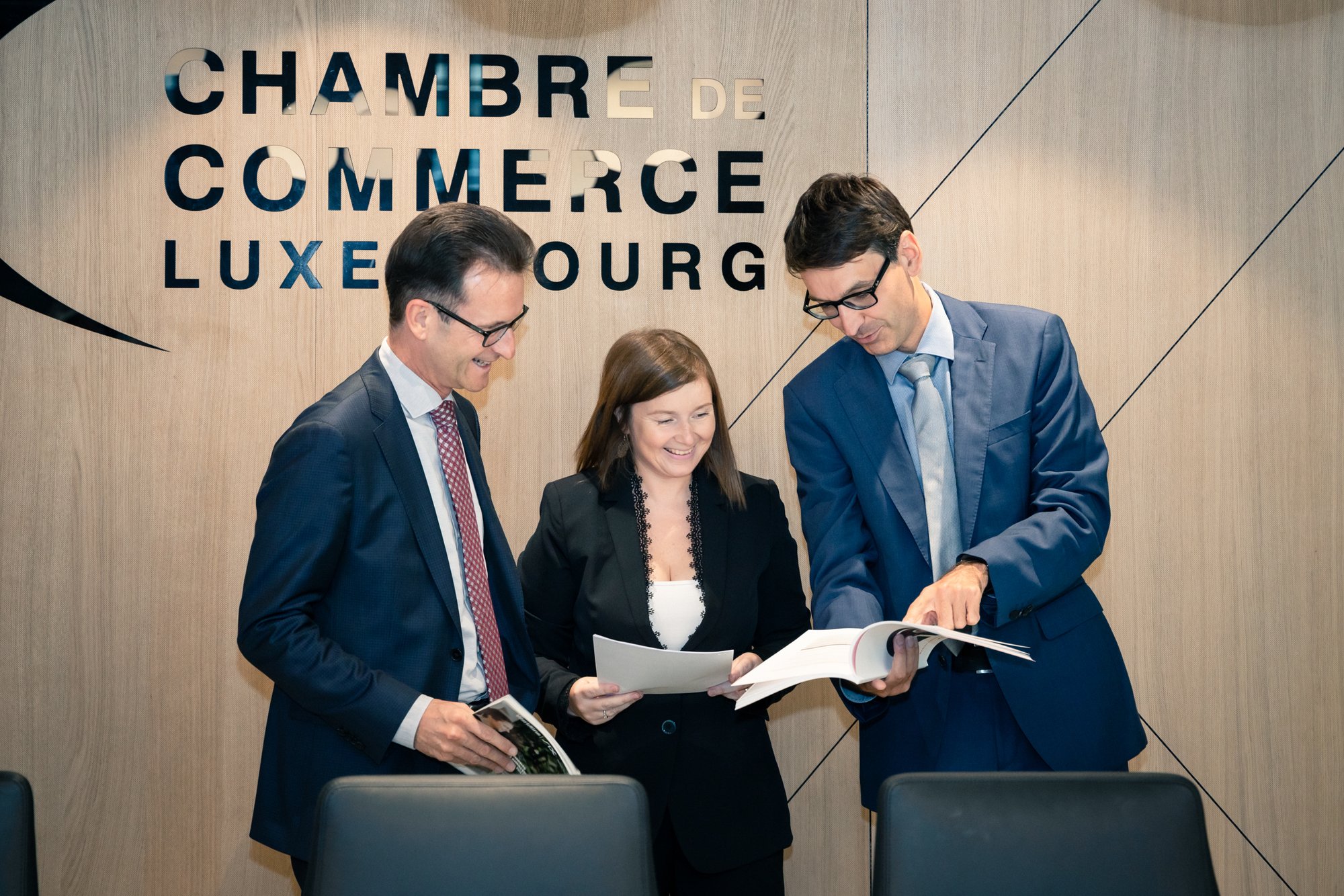
Actualité et tendances

In a globalised economy, where technological change and the amount of services within the GDP of most countries is growing, the value of companies and their competitiveness are increasingly based on intangible elements. The Luxembourg Chamber of Commerce has decided to devote edition N°23 from its series of economic bulletins, Actualité et tendances, to taking a closer look at the intangible assets of companies and their protection via intellectual property.
The Chamber of Commerce’s publication has several objectives, namely to outline the importance of intangible assets on a microeconomic level (an important factor in competitive demarcation), and a macroeconomic level (in connection with the ability to innovate and grow); raise awareness among legislators of the need to adapt the legal frameworks to a rapidly changing economic and technological context (notably speeding up registration procedures, further developing the provisions of the IP Box, and taking into account the specific situation of SMEs); and alert companies to their responsibilities for the optimal use and protection of their intangible assets (comprehensive knowledge of their intellectual property rights, systematic contractualisation of property and, when necessary, its transfer, as well as surveillance to fight against counterfeiting).
Based on a few examples (Uber or Airbnb platforms whose value is extremely high even though these companies do not have any physical assets; an increasing share of software investments in the costs related to the development of new models in the automotive industry...), the publication highlights the increasing dematerialisation of wealth creation. From now on, Research and Development, patents, software, organisational methods and other human capital are becoming increasingly important. According to the American magazine Forbes, intangible assets now represent about 80% of the value of listed companies. Equally, the European Patent Office (EPO) and the European Union Intellectual Property Office (EUIPO) estimate that sectors that make intensive use of intellectual property rights (IPR) contribute to 42% of Europe's GDP and 28% of employment. In their study, it appears that Luxembourg is above the European average, at 45% of the GDP and 38% of jobs. The Chamber of Commerce recognises the challenge in establishing the value of the intangible assets of businesses, yet which can also have great potential for businesses and help them to obtain funding.
The different facades of intellectual property
Actualité et tendances N°23 of the Chamber of Commerce also reviews the various existing intellectual property titles and their characteristics, distinguishing in particular between the two main categories of industrial property on the one hand, and literary and artistic property on the other. The former is obtained after formal procedures, while the second exists as soon as a work is created. The publication therefore deciphers the characteristics of a patent, a trademark application, and the registration of a design, before setting out what is covered by copyright.
In the second part, the publication presents those concerned by intellectual property, those in charge of protecting the intangible capital of companies. There are many organisations that manage intellectual property because they operate in various geographical areas (Luxembourg, Benelux, Europe, worldwide...), which makes the procedures relatively complex and can unfortunately discourage some companies, especially the smaller ones. Indeed, complexity also means costs, particularly translation costs in the case of Europe. This situation of costly complexity is partly responsible for Europe's poor performance in patent filing. The leading countries in this field (United States, China and Japan) do not have to manage a multilingual situation. In the absence of a unique European patent, which would be very complex to implement, the Chamber of Commerce is now considering the possibility of initiating a Benelux patent following the example of trademark registration which is now unified in Belgium, Luxembourg and the Netherlands.
The responsibilities of businesses
After outlining the various types of existing intellectual property titles and the bodies responsible for their registration, the Chamber of Commerce's publication calls attention to the risks to companies who fail to monitor files or to obtain official recognition of intellectual property. The protection of intangible assets must be under constant consideration because registration is often linked to a location and a duration. It is therefore in the interests of companies to accurately list property titles in order to avoid being deprived of rights. Vigilance is also required in the field of counterfeiting, which now affects almost all sectors, largely due to sales on the Internet.
The publication concludes that the new economic conditions (rapid technological evolution, globalisation, the importance of the dematerialised economy) make it more than ever necessary to pay close attention to the management of companies' intangible assets and urges public authorities to address the issue in order to design strategies that take into account the necessary protection of inventions and innovations without impeding competition. Supporting SMEs and setting up rapid and efficient procedures for settling disputes are two priorities highlighted by the Chamber of Commerce.
To read Actualité et tendances N°23 in its entirety, click here.


